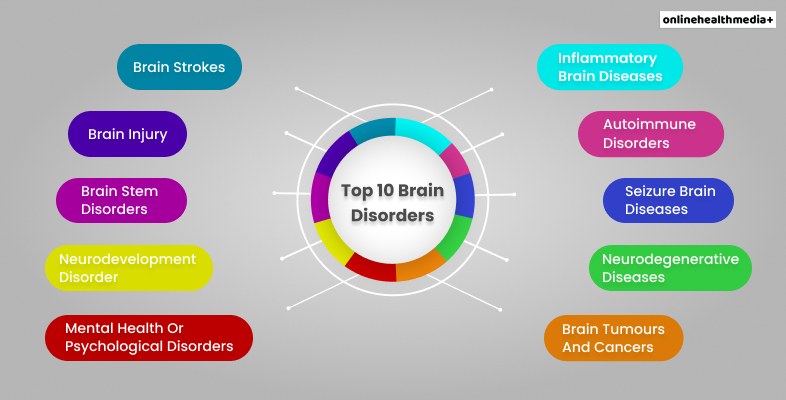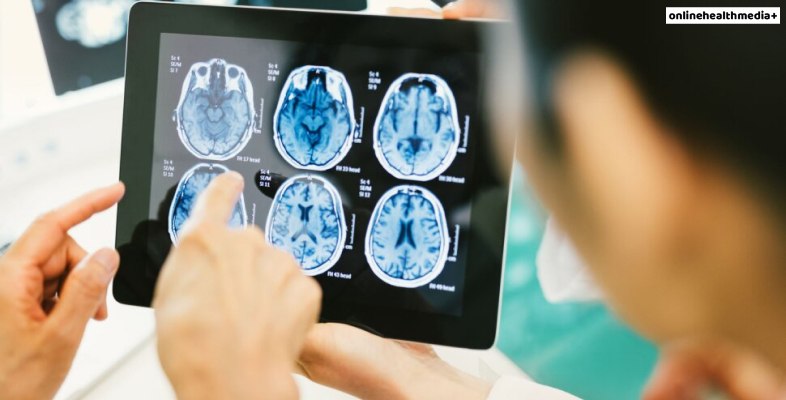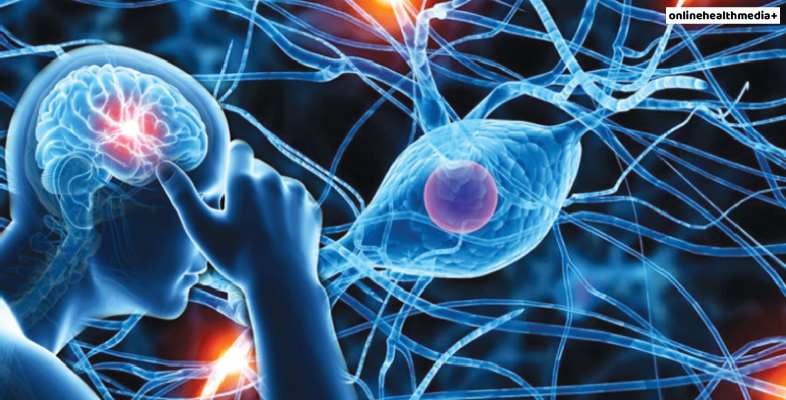What Are Brain Disorders? Symptoms, Treatment, And Prevention
The human brain is a complex system that controls our body and mind. It sends signals to command every part of the human body to complete physical actions.
However, diseases caused for many reasons can affect the organ, which leads to some devastating results. Unfortunately, these often occur way ahead of when it is discovered and diagnosed, taking them to an incurable state.
This article has an elaborated discussion on brain disorders and their other aspects.
What Are Brain Disorders?
Brain disorders, also known as neurological dysfunction, denote any disruption or abnormality in normal brain function. When the human brain gets infected or damaged, it affects the nervous system.
Thus, a disrupted nervous system loses control over its regular functionalities like controlling the other organs, muscles, memory, etc.
Top 10 Brain Disorders: Types With Examples
Once a human brain gets affected, it causes several types of diseases. Below is a brief discussion of the categories of brain diseases:

Inflammatory Brain Diseases
Brain diseases caused by inflammation is the most common one. However, these inflammatory diseases are challenging to recognize due to their symptoms like fever, headache, confusion, etc. Encephalitis is an inflammation caused in brain tissue, and Meningitis occurs in the spinal cord or brain lining.
Autoimmune Disorders
Autoimmune disorders occur when the body’s immune systems start dysfunctioning and attacking myelin. Myelin is the covering tissue of nerves. Therefore, its damage can create blurred vision, speech problems, and weakness in the legs and arms. Multiple sclerosis, Autoimmune encephalitis, and Hashimoto’s encephalopathy can be some examples.
Seizure Brain Diseases
Seizure brain disorders are disruption of brain activity from any illness or injury. Epilepsy is one of the most significant examples of this disorder. Other examples are mesial temporal lobe epilepsy, pediatric or genetic epilepsy, and post-concussive epilepsy.
Neurodegenerative Diseases
Such diseases can cause slow damage to the human brain and nervous system. Thus, it can cause confusion and a change in human personality. Additionally, it can affect the thought process and memories. Some neurodegenerative diseases are Alzheimer’s disease, Huntington’s disorder, ALS, or Amyotrophic Lateral Sclerosis.
Brain Tumours And Cancers
One of the most common brain diseases is tumor and cancer. Cancer is usually generated from tumors that enter into a malignant stage. Both malignant and benign tumors can cause damage to brain tissue. Metastatic, Meningiomas, Astrocytomas, and Glioblastomas are some examples.
Neurodevelopment Disorder
These brain disorders are caused due to impairment of the development of the central nervous system. It affects brain growth and communication ability. Autism or ADHD is a significant example of such a disorder. Some other examples can be cerebral palsy and hyper-reactive disorders.
Mental Health Or Psychological Disorders
These disorders are included in a separate group, which is entirely related to human behavior and psychology. Some commonly diagnosed mental illnesses are Bipolarity disorder, depression, schizophrenia, anxiety disorder, PTSD or Post-traumatic Stress Disorder, etc.
Brain Stem Disorders
The brain stem passes the motor-sensory indications between the brain and spinal cord. Its failure can cause damage to cranial nerves, which leads to impaired consciousness, Cranial Nerve Palsies, Dysautonomia, etc.
Brain Injury
Severe trauma to your brain can cause injuries and damage the nervous and brain tissues. Some brain injuries are Hematomas, Cerebral Edema, Contusions or bruising, and blood clots.
Brain Strokes
Brain strokes often cause permanent disabilities or paralysis in adults. Some notable names that are popular in the medical field are Ischemic and Hemorrhagic stroke. Strokes often lead to a blood flow disruption to the brain and diseases like movement disorders.
What Are The Causes Of Brain Disorders?
Now that you have gone through the brain disorders list and acquired enough knowledge let’s discuss the reason. The primary causes are as follows:
- Traumatic brain injury
- Inflammation
- Stroke or disruptive blood flow to the brain
- Genetics or inherence
- Immunity disorder or malnutrition
- Intoxicating environment
- Eating disorder
- Overconsumption of alcohol
Symptoms Of Brain Disorder
Brain disorders symptoms can vary from case to case, condition to condition. However, being aware of the general symptoms always helps. Below are some general signs of brain diseases:
Physical Signs
- Headaches
- Partial or complete sight loss
- Hearing and speech issues
- Dizziness
- Gradual paralysis
- Disability occurring in reading and writing
- Problematic sense of taste and smell
- Weakness around legs and arms
- Tremors and shakes
- Vomiting
- Nausea
- Unaccountable pains
- Excessive fatigue
Analytical Signs
- Problem in concentration
- Partial or complete memory loss
- Change in personality
- Confusion
- Stiffness
- Emotional or impulsive disorders
- Depression
- Anxiety
Treatments For Brain Disorders

The treatment depends on the types, causes, and conditions of brain disorders. However, some common treatments are as follows:
Medication
Brain diseases can be mitigated with medication at an early stage.
Rehabilitation
Mental health disorders are specially treated with rehabilitation, including speech therapy, physical therapy, and psychiatric services.
Brain Surgery
Usually, medical experts go for surgical procedures when brain disorders are at the final stages.
How To Prevent Brain Disorders?

Therefore, it is ideal for taking care of your health to prevent the possibility of brain diseases.
Although there are no particular preventive measures for brain disorders, you can do the following things to control the risks:
- Brain diseases often occur due to a poor immune system. So, leading a healthy life and eating healthy food is essential to prevent bain disorder.
- Involve yourself in regular exercise and stay active. Research proved that staying physically active lowers the risk of brain diseases significantly.
- Generally, high pressure, bad cholesterol, and obesity cause blood flow disruption to the brain. Therefore, you must have control over your weight, sugar, and pressure level.
- Avoid certain medications and over-intoxication to reduce the risk of brain diseases.
Frequently Asked Questions (FAQs):
The most common cause of brain disorder is a poor immune system. The brain requires adequate nutrition for uninterrupted functions. Therefore, immunodeficiency or malnutrition caused by eating disorders affects the brain.
Usually, the early signs of Alzheimer’s disease are gradual memory loss and impaired behavior. It can cause permanent memory loss depending on different cases.
A brain Abscess is a brain swelling full of puss. It usually develops when fungi or bacteria attack brain tissues after severe injury or infection.
Benign tumors also affect the brain tissues like malignant tumors by putting pressure on them. Thus, it may destroy brain tissue, affect your brain, and cause problems to parts associated with your brain.
Conclusion
Brain diseases occur gradually and start showing symptoms quite late. Thus, often they become incurable. Also, treating brain diseases is a matter of massive expenses and time. Therefore, it is always wise to prepare and prevent than to repair and repent.
If this information has been helpful to you, share these words with others and consider coming back for more.
Read Also:
• What Is Bipolar Disorder? Symptoms, Treatment, And Prevention
• What Are Bug Bites? Know About The Types And Symptoms
• 4 Ways To Incorporate Multivitamins Into Your Routine



